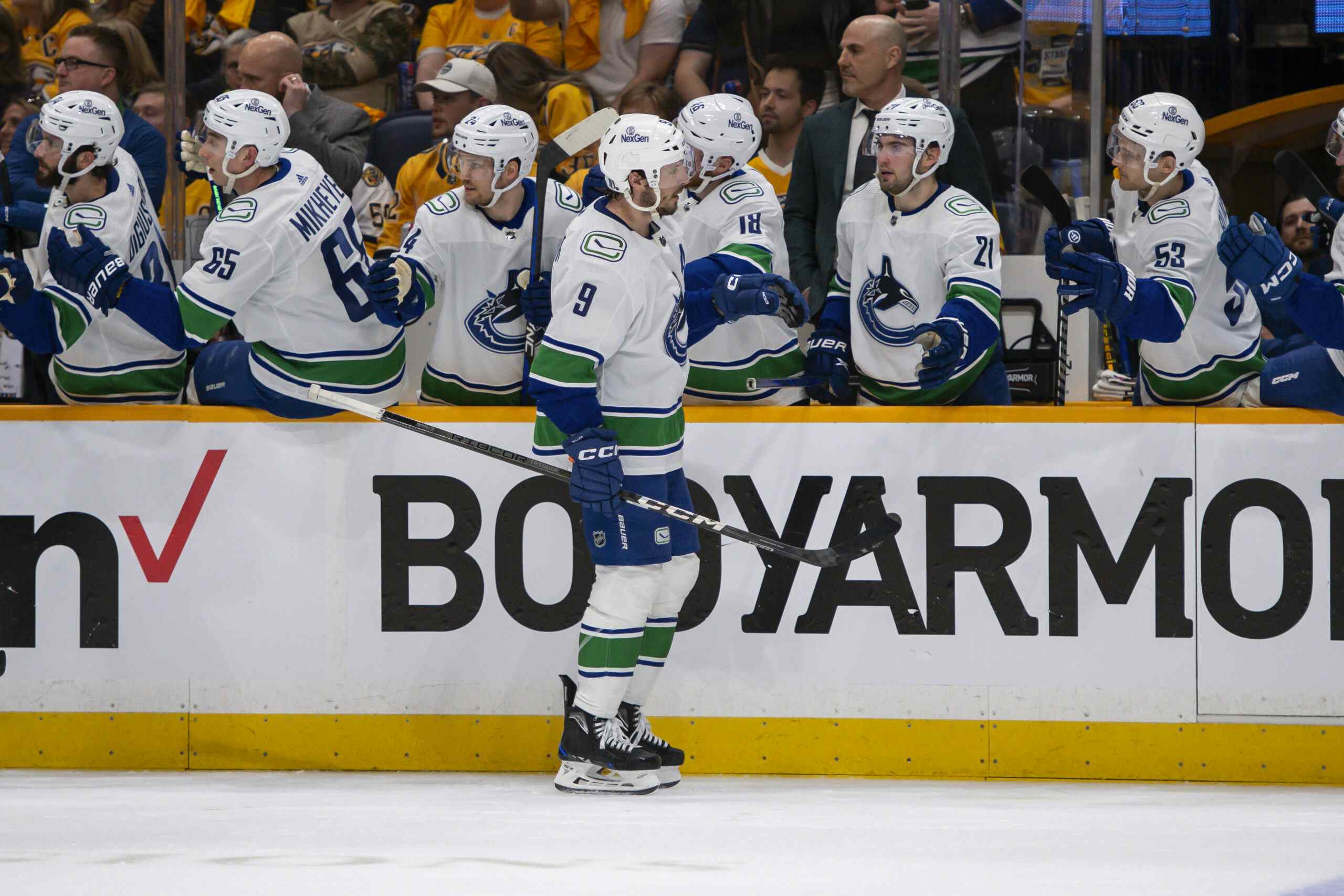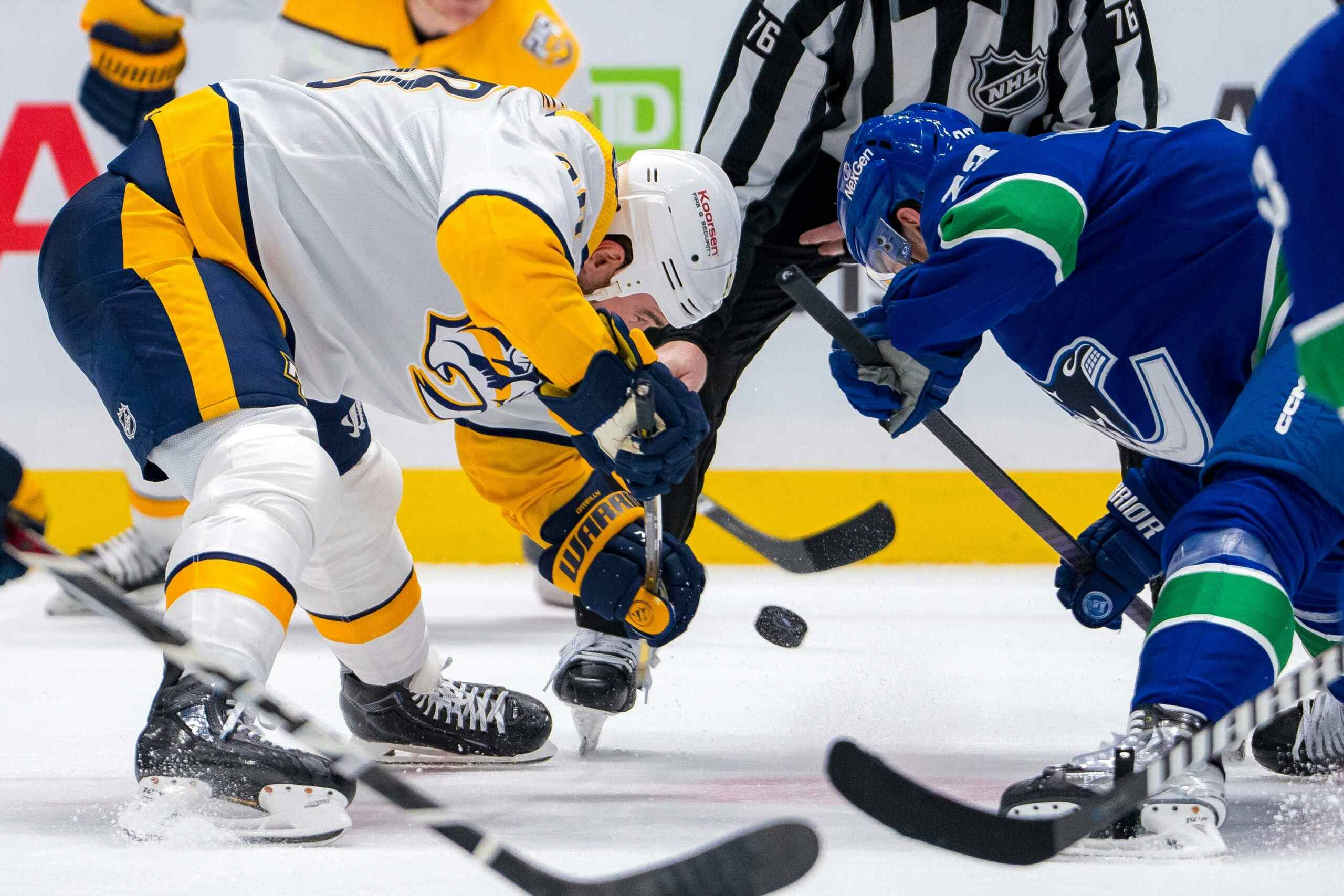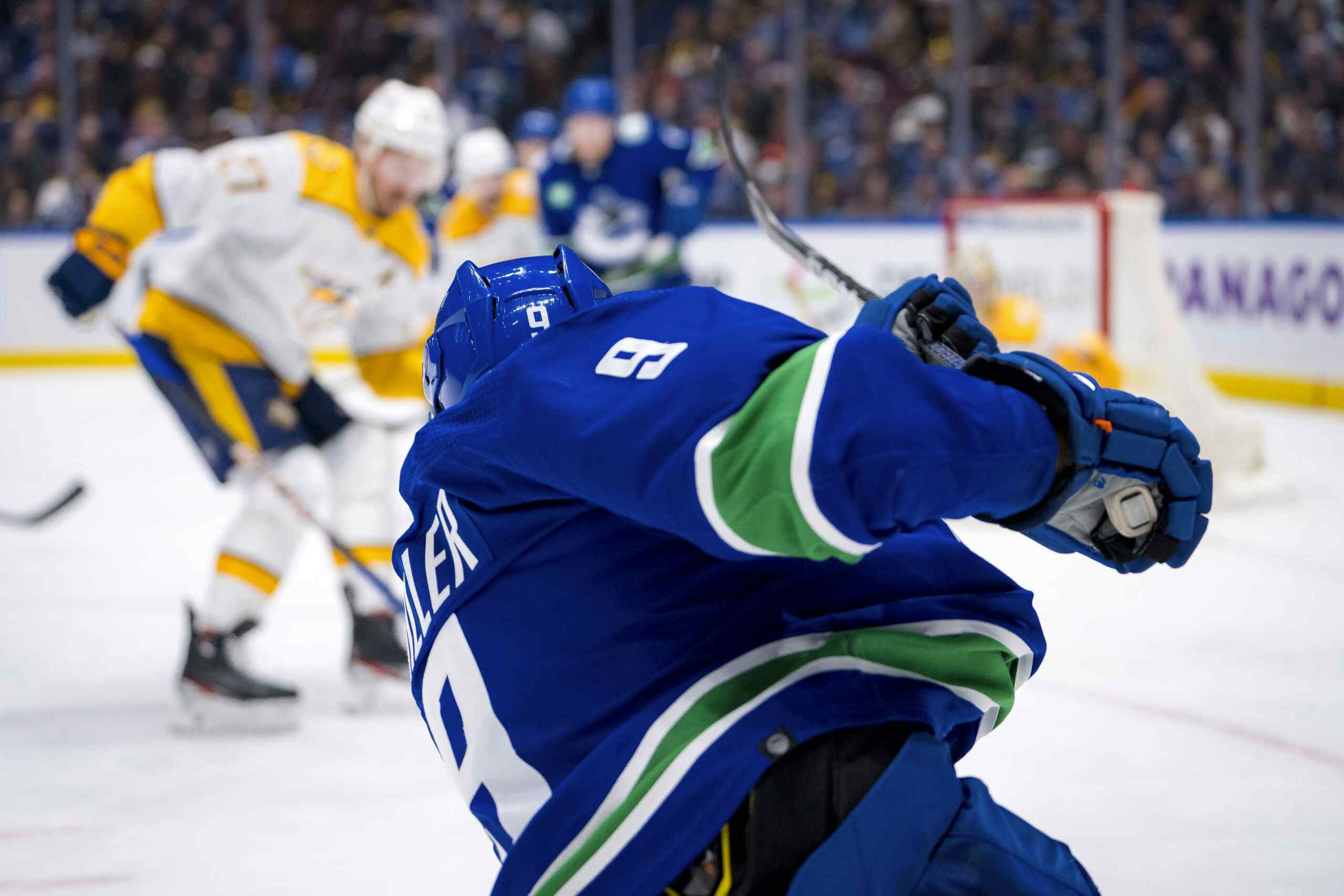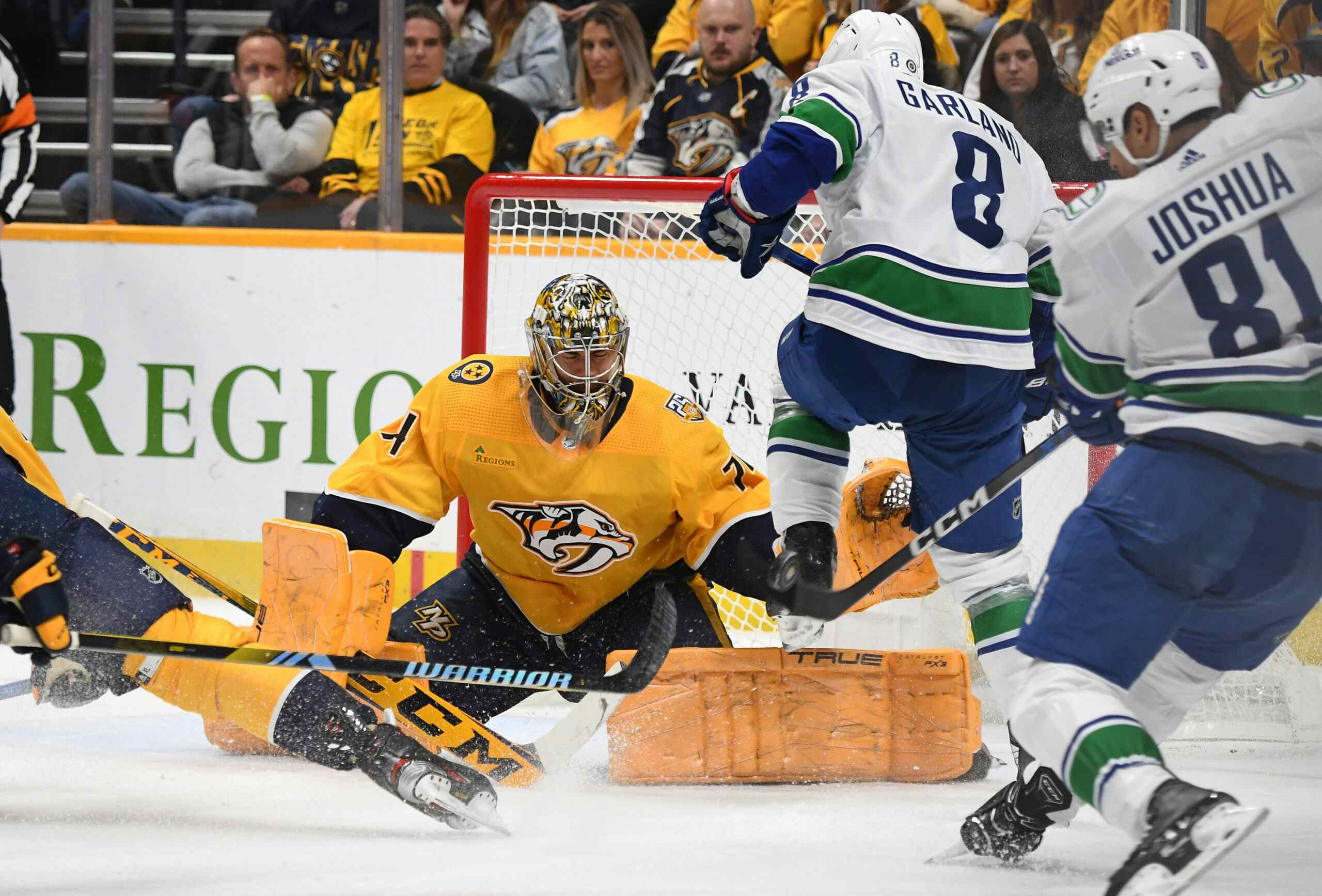Alain Vigneault and Cognitive Biases
By Jeff Angus
11 years ago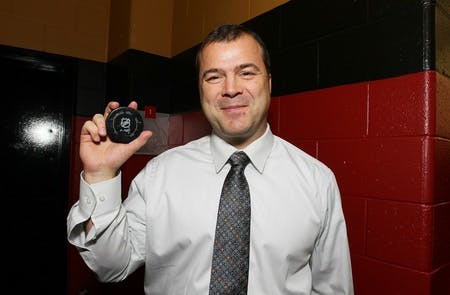
Alain Vigneault is far from perfect. He has angered past (Cody Hodgson) and present (Ryan Kesler) Canucks with his comments on injuries and injury recovery. He incorrectly assumed Daniel Sedin’s concussion was minor (let’s remove ‘minor concussions’ from our vocabulary while we’re at it), failing to plan for a postseason without Daniel.
His biggest mistake may have been keeping Roberto Luongo in goal too long in any of the three games in Boston last June, but game three especially.
Vigneault is an innovator, and has been a successful regular season coach with the Canucks, winning five division titles in his six seasons, including two Presidents’ Trophies as the league’s best team.
His postseason record isn’t as stellar – in 11 playoff rounds behind the Vancouver bench, Vigneault holds a 6-5 record. Thomas Drance took this to task back in April, breaking down Vigneault’s postseason coaching history in Vancouver.
The players, for the most part, like playing for him. Vigneault demands effort and consistency, but he allows the players the luxury of running the dressing room, something many other coaches around the league do not. He plays favorites, just like every coach in the history of every sport. However, he doesn’t award ice time based on a player’s pedigree, contract status, or favorite colour. He rewards performance.
After the Canucks were bounced in the first round by the Los Angeles Kings a few months ago, members of the local media (without naming names) clamored for a coaching change. Many in the fan base got behind the movement.
Why, exactly, would people want the Canucks to fire the most successful coach in the history of the franchise? Let’s use some well-known cognitive biases to explain.
Availability Heuristic/Recency Effect
‘There are two biases that come from the availability heuristic: Ease of recall and retrievability.’
The ability to recall recent events more clearly than past events is universal. You are more likely to remember the score of a game played yesterday than one a few years ago (June 14, 1994 notwithstanding), just as you are more likely to remember the performance of a player from this season compared to four seasons ago. Dustin Brown is the current golden boy of hockey, but only a few months ago he was on the trading block as the Kings were looking to shake things up.
Three years ago, Alex Ovechkin was projected to approach Wayne Gretzky’s untouchable scoring records. Now, Ovechkin is playing a lesser role for the Capitals than teammates like Jay Beagle and Matt Hendricks (although with Dale Hunter out in Washington I wouldn’t expect it to continue).
The disappointing end to the 2011-12 season for Vancouver is still fresh in the minds of many, and Vigneault’s past successes (one win from hoisting the Stanley Cup, multiple division titles) are quickly overlooked. Coaching is a “what have you done for me lately” profession, but poor decisions get made when people shrink their window of analysis to include only recent events.
Focusing effect
The focusing effect is a bias that occurs when people place too much emphasis on one single event or situation when making a decision. With Vigneault, people tend to focus on his usage of Aaron Rome or Keith Ballard, all the while ignoring the fact that he has played a large part in the progression of the Sedins from stars to superstars, as well as the development of Alex Burrows, Ryan Kesler, Kevin Bieksa, Jannik Hansen, Max Lapierre, and so on. Vigneault doesn’t overplay his star players, and he has done a terrific job employing a strategy to maximize the offensive return from his scorers and the defensive return from his checkers.
Vigneault, still thought of as many as a defensive coach, has led teams that have finished 4 th, 1st, and 2nd in goals for over the past three seasons, respectively.
Affect heuristic
‘It is an unconscious bias that shortens the decision-making process and allows people to function without having to complete an extensive search for information. It is shorter in duration than a mood, occurring rapidly and involuntarily in response to a stimulus.’
Stimulus = Canucks loss. Result = Fire Vigneault. People who rely too much on emotions in their decision making (i.e. the Vancouver fan base) are guilty of falling into this trap. Rationality wins out most of the time, and thankfully Mike Gillis is patient and calculating with his decision- making (i.e. not Mike Milbury).
Vigneault isn’t trying to sabotage Vancouver’s chances to win by playing Rome, Dale Wiese, or not playing Hodgson or Ballard. In fact, he could be credited with putting Hodgson in a role to succeed, allowing the Canucks to ‘sell high’ on him. The question of if they really did ‘sell high’ is an entirely different issue.
Look at the prospects that have come through the Vancouver system since Vigneault took over. Grabner was on his way to become a top six scorer, and the team was able to build an enticing trade package around him. Hodgson went from a prospect with severe question marks to a Calder contender. Chris Tanev looks ready to play a regular shift in the NHL, and Alex Edler is one of the better young two-way defenders in the game. One could make the argument that the only skilled prospect not to succeed under Vigneault has been Sergei Shirokov.
Vigneault has also done a masterful job managing the ice time of his two goaltenders (it helps that Cory Schneider has shown tremendous professionalism and patience over the past two years).
‘It has to do with certainty, and the odds of your own judgment being challenged. If you don’t have a strong preference for a particular thing, it is easier to agree with the majority than it is to disagree. Disagreement usually requires a solid stance to support your side. The more people on the bandwagon, the more solid your argument about why you’re not on it has to be.’
Yep, the dreaded “b” word. The term bandwagon is all too common in sports – the more people get behind a team, a player, or an idea, the more momentum it builds. The “fire Vigneault” bandwagon seems to have collected speed every time the Canucks have lost over the past year or two, just as it seems to slow down when the team wins (which has happened a lot).
Thankfully, we have fantastic blogs covering the Canucks that are able to provide well-thought-out arguments on the topic of Vigneault’s coaching.
Confirmation Bias
‘This is our uncanny tendency to search for, or interpret, information that agrees with our preconceptions. For example, if you suspect that a certain person is a certain way (whether it be evil, lazy, or perfect), you will tend to notice and interpret that person’s behaviors in such a way that support your belief.’
Vigneault didn’t play Rome over Ballard because he hated Ballard. He played Rome over Ballard because Rome was more effective in that role. He didn’t increase Hodgson’s even strength ice time because he was a defensive liability.
The purpose of this column wasn’t to slam all of Vigneault’s critics. Many of them have raised valid points. And I’d be just as guilty as following the pro-Vigneault bandwagon if I didn’t believe there were some negative points in his coaching tenure. A few well-known cognitive biases can explain why you may feel a certain way without even knowing it.
For more on the topic, I’d highly recommend reading Thinking, Fast and Slow by Daniel Kahneman and How We Decide by Jonah Lehrer.
Recent articles from Jeff Angus


